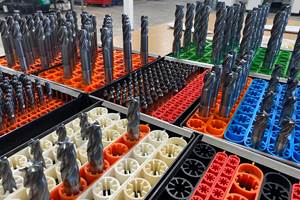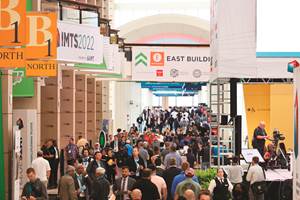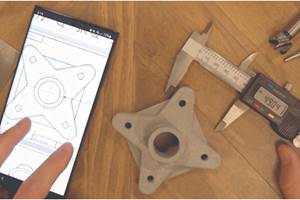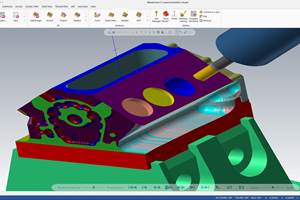Bob Bourbon, lead programmer at Planet Tool and Engineering, recalls that the company had to “send some people home” when business slowed about 20 years ago. That incident marked the first and only layoffs at the O’Fallon, Missouri-based shop in the 28 years he has been with the company. Even through recent tough economic times, Planet Tool has managed to stay busy and retain its valuable manufacturing talent.
The shop’s secret, says Curt Schatz, general manager, is developing a deep understanding of customers’ diverse needs and maintaining the flexibility to respond in a timely manner. One tool that facilitates that flexibility is the Mastercam CAD/CAM system from CNC Software (Tolland, Connecticut). “One of the greatest strengths of Mastercam is that it gives you several ways to do just about anything you want,” Mr. Bourbon says.
Of course, the software is still just that—a tool—and the extent of its benefits depends on how it is used. This is exemplified in the shop’s recent transition from shopfloor to offline programming, a move that standardized programming practices, reduced cycle times and freed more time for machinists to spend on setups. A major reason offline programming works well is that it creates flexibility for the people creating the programs. “You can have all kinds of specialty equipment—the latest and greatest—but all that counts for very little unless your people are versatile and flexible enough to make the most of your manufacturing capabilities,” Mr. Schatz says.
The diverse skill set of the company’s 70-person staff is reflected in the variety of work it performs. Founded in 1965, Planet Tool offers engineering, prototyping, machining, quality control, welding and fabrication, painting, and custom machine design and reconditioning. Industries served range from automotive to aerospace. “We are a one-stop shop,” Mr. Schatz says. “A person can come in our door and get pretty much anything he or she needs. We have engineering staff. We have machining staff. We cover everything.”
Among the various machining, fabricating and assembly equipment on the shop floor are 15 vertical CNC mills. Machinists wrote their own programs for these machines until about 10 years ago, when the shop purchased its first seats of Mastercam. The software enabled the machinists to apply their skills more effectively. CNC tool paths were clean and reliable, and programming productivity improved significantly.
Ironically, the flexible programming that enabled each machinist to apply the software as they saw fit eventually became the problem. Tightening project deadlines increasingly required moving jobs from machine to machine and machinist to machinist. Lengthy setup times and the lack of a standardized programming approach impeded the shop’s ability to keep up with time and product demands.
In early 2009, management asked Mr. Bourbon, who was considered to be the most proficient Mastercam user, to forgo his role as a machinist and become a dedicated, offline programmer. He made the transition gradually, but by the end of the year, he was dedicating most of his time to programming. Generating programs offline freed more time for machinists to spend on setups. Meanwhile, Mr. Bourbon instituted more consistent programming practices and discovered quite a few “tricks” to reduce machining cycles. These included the use of high speed roughing tool paths combined with advanced cutting tools, insert drilling and circle milling for cutting threads. These and other incremental improvements have reduced machining cycles for new work. Additionally, some re-engineered jobs that were once only marginally profitable are now manufactured more efficiently. Overall, spindle uptime has increased by approximately 25 percent since the move to offline programming, and lead times have decreased.
However, the shopfloor programming experience that machinists have accumulated over the years does not go to waste. In fact, that experience is a key reason that moving to offline programming has been so effective at Planet Tool. The flexibility of the operation still depends on the flexibility and diverse skill sets of the staff.
For example, despite his role as a dedicated programmer, Mr. Bourbon can still help set up machines on the shop floor if he’s needed. Likewise, any of the shop’s machinists/programmers can work offline with him as needed to clean up CNC programming backlogs.
The difference is that whoever does the programming will adhere to the standards for setups and toolpath choices that Mr. Bourbon has instituted for specific machine types and part geometries. However, far from being straight-jacketed by these standards, machinists are encouraged to speak up if they have a different idea about the manufacturing process used for a given workpiece. They also still have access to Mastercam at each machine. This provides the option to confer with an engineer on the spot and make appropriate changes to manufacture a given part faster or with fewer cosmetic problems. “Everybody here has to think outside the box, because everybody plays a lot of different roles,” Mr. Schatz says. “We don’t have any button-pushers.”
Since a surge in new work appeared in January 2010, Planet Tool has continued to use its diverse manufacturing and CAD/CAM capabilities to win new projects one quote at a time. Mastercam’s simulation capabilities have proved especially valuable in this effort. One example is a recent month-long project that involved analyzing and re-engineering wheel spindles for a large four-wheel-drive vehicle. The spindles tended to break when the wheels encountered severe road shock, a problem the customer hoped to remedy.
Previously, Planet Tool had entered into a co-location agreement with Accu-Data, a company that provides advanced inspection and reverse-engineering services using arm-type measurement systems and laser trackers. This relationship proved very helpful on the wheel spindle project. At the time, these parts were produced by machining two large castings and welding them together. Based on reverse engineering data, Accu-Data suggested that the piece could be manufactured on one of the shop’s large, four-axis CNC machines with no appreciable time or cost penalty. Computer simulation of the single-unit job in Mastercam confirmed that the part could, indeed, be made faster from a single billet.
Now, the developmental wheel spindles are more impact resistant. Moreover, the manufacturing process no longer calls for castings that require expensive tooling with long lead times. The OEM might even use this process for production models. Even if it doesn’t, it now has a backup plan for acquiring the parts if problems ever develop with the casting process.
In another instance, Mr. Bourbon used Mastercam to devise a process for manufacturing 24-inch by 2-inch tubular parts that required large amounts of 3D profiling on the outside edge. The parts’ walls were only 0.001-inch thick. Instead of purchasing carbon and machining EDM components for each side, it turned out to be faster and less expensive to make the part as a single piece. Mastercam’s computer simulation was sufficient proof of concept.
The success of Planet Tool’s flexible approach to programming and machining is perhaps best evidenced by the company’s recent growth. When it moved into its current 40,000-square-foot facility 10 years ago, it kept only half the space to itself and leased the remainder. That space soon filled up, however—in the past five years alone, the shop has purchased five machining centers, a lathe, a waterjet and a press brake. Moreover, During the first half of 2010, customers indicated that the company might get additional work if it had more capacity and more space. So, that year it decided not to renew the lease. As soon as they were able, workers were breaking through walls to acquire an additional 20,000 feet of manufacturing space.
How does Mr. Schatz explain such lively prospects, even in a sputtering economy? With one word: “diversity.”

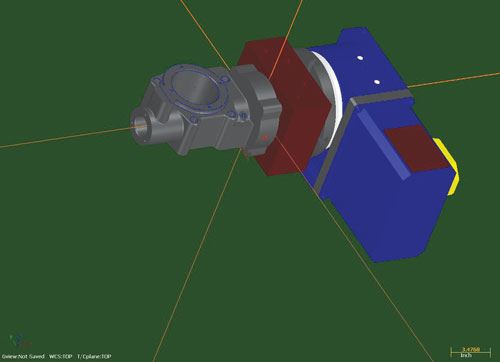
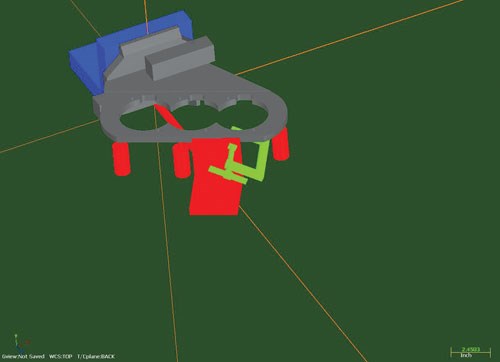
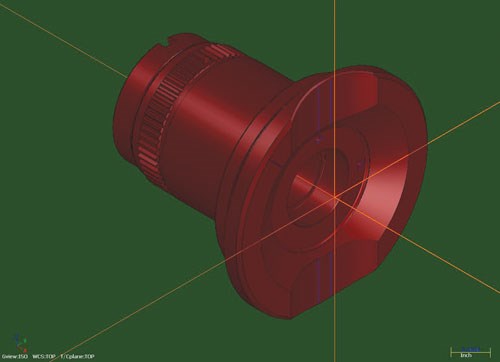
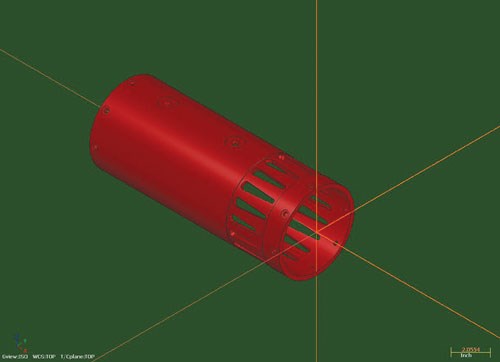



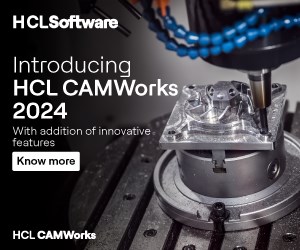


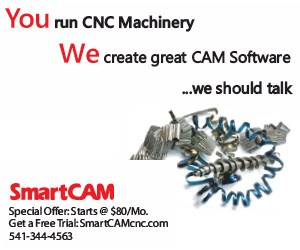




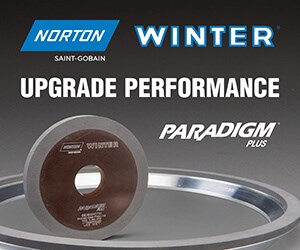






.png;maxWidth=300;quality=90)
